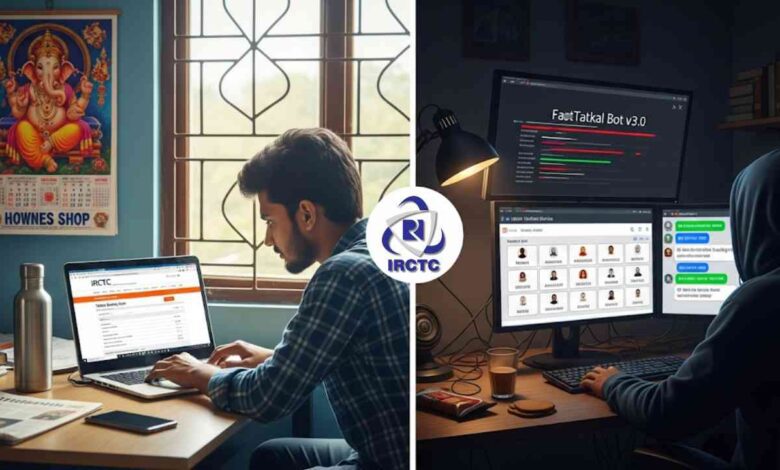IRCTC Tatkal Scams: Has the Influence of Touts Really Decreased? The Truth Behind IRCTC’s New Rules

IRCTC Tatkal Scams: Recently, IRCTC has introduced several new updates to its ticket booking process. The main objective of these updates was to reduce the influence of touts and scammers and to provide the general public with an easier way to book tickets. But the question is, have these new updates truly benefited the common person? In today’s post, we will discuss the effectiveness of these updates and some crucial issues behind them.
The Reality of the New Updates
Among IRCTC’s major new updates were Aadhaar authentication and account verification for Tatkal tickets, which were implemented from July 1, 2023. Surprisingly, even after these rules were introduced, the activities of touts have not diminished in the slightest.
- Failure of Aadhaar Authentication: IRCTC announced that only Aadhaar-authenticated users would be able to book Tatkal tickets. In reality, however, verified IRCTC accounts are reportedly being sold on platforms like Telegram for around ₹3,300. This has put the security of users’ personal data at risk.
- Problems with Account Verification: Another significant update required users to verify their accounts using their original registered email ID and phone number. However, many people who created their accounts years ago no longer have access to their old email or phone number. As a result, their accounts are being deactivated, and their money is getting stuck in the IRCTC e-wallet. There have been cases where users have lost amounts like ₹7,500, ₹8,000, or even ₹10,000.
- Continued Activity of Scammers: Despite all of IRCTC’s efforts, touts and scammers remain active, using ticket booking software and extensions as before. They manage to book Tatkal tickets within seconds. On the other hand, it has become difficult for the general public to create new IRCTC accounts, often encountering errors like “Unable to process.”
What Could Be the Solution?
An effective step to solve this problem could be to introduce a “Login with OTP” system. If IRCTC makes it mandatory to log in using its own OTP system, it could be more reliable and faster. Aadhaar OTPs often face complaints of server issues and delays. IRCTC’s own OTP system could bypass these problems and help control the activities of touts.
Conclusion
Overall, IRCTC’s new updates seem to have caused more problems than benefits for the common person. While ordinary people are struggling with their accounts and money, touts and scammers are continuing their operations unhindered. It is hoped that IRCTC will reflect on these issues and take more effective measures in the future that will genuinely help the public.

